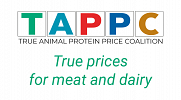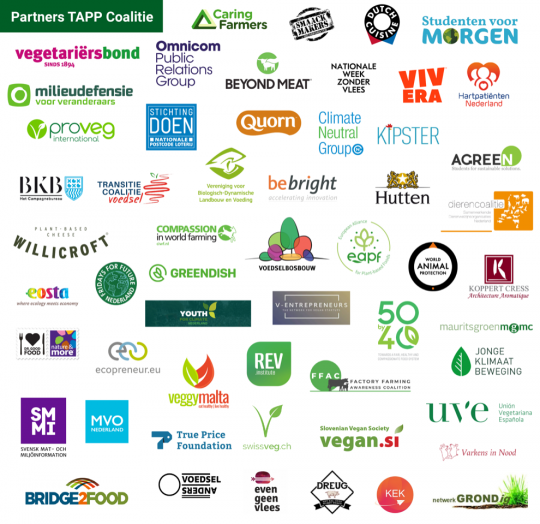Open letter to EU to include Framework Sustainable Food Systems in work programme 2023
Joint open letter on the need to include the framework on Sustainable Food Systems in the EC work programme for 2023
29 September 2022
Dear President von der Leyen,
Cc: Executive Vice-President Frans Timmermans, Commissioners Stella Kyriakides, Janusz Wojciechowski and Virginijus Sinkevičius
With this letter we want to stress that food security and sustainability go hand in hand. A sustainable agriculture and a shift towards sustainable, more plant-based food consumption is necessary to guarantee food security. The current agriculture with a high use of fertilizer, pesticides and a high consumption of animal meat is a big treat for the planetary boundaries.
We, a European Coalition representing civil society organisations and food companies*), are writing to throw our full support behind this Commission’s commitment to laying the foundations of an EU food system transition to sustainability. We urge you to remain strong in the face of growing (geo)political pressures and attacks on the Farm to Fork Strategy, and to come forward with the legislative framework for Sustainable Food Systems (FSFS), as planned for 2023. In October, the Commission will adopt its work programme for 2023. We call upon you to ensure that the FSFS features prominently on the list of initiatives announced for next year, which will also be the last one before the EU elections in 2024.
Food security, food affordability and low income groups
High prices for energy and fertilizers have been mentioned by farmers organisations as a reason to stop the Farm to Fork Strategy policies, the EU Framework for Sustainable Food System Law (FSFS) and to pave the way for more food production at the expense of nature and environment in the name of food security and food affordability of low income groups. This would be the wrong strategy, making the food security crisis even worse. Low income groups can be supported by 0% VAT rates for healthy, sustainable food products, food stamps for free, healthy or sustainable food and by higher VAT rates on specific food products like sugar and meat, if such products lead to high health care costs. This proposal was demanded 18th October 2021 by a large majority in EU Parliament[1].
Organic food and shifting towards plant-rich diets and link with food security
Increasing the use of organic agriculture is a tool for food security, because organic farming is more resilient to climate change (adaptation), compared to conventional food systems (better soil quality and abilities to deal with droughts and wet periods). Organic food systems do not make excessive use of chemical and pharmaceutical inputs and extractive practices, and are therefore able to sustain production levels, unlike some conventional forms of farming.
In addition, implementing policy measures that facilitate a transition towards plant-rich diets could free up 75% of agricultural land28, which could be used for food production (feeding the increasing population), more organic food production, conservation, reforestation, ecosystem restoration, agroforestry and other purposes to mitigate and adapt to climate change[2].
Making the EU food systems climate neutral by 2035 is key to prevent climate disasters
Attempts to weaken EU-climate policies in general, and for food and agriculture especially, will cause even more food security problems. Extreme weather events – droughts, storms and frosts –already caused major impacts on the farming community and agri-food businesses in Europe this year[3]. In August 2022, 47% of the EU territory was under a drought warning and crop yields reduced with over 15%. Climate change is a major stressor to food and livestock production too. It will cause a negative impact by affecting the quality of feed crop and forage, water availability, animal and milk production, livestock diseases, animal reproduction, and biodiversity[4]. Globally, a 7–10% decline in livestock is expected, with associated economic losses between $9.7 and $12.6 billion solely due to climate change[5]. Making EU food systems climate neutral by 2035 is key to prevent more disasters. Food scarcity as a result of climate stress in agriculture, will lead to very high food prices.
Reducing meat and dairy consumption and production with 30% by 2030
Without the SFS Law and incentives to make animal protein food production and consumption sustainable and ‘Paris proof’, greenhouse gas emissions will continue to grow. A shift in EU food consumption and production patterns is needed towards climate neutrality by 2035 (as was proposed by the EU Commission), which can be realized if meat and dairy consumption and production is reduced with 30% by 2030 and 50% by 2035 and if all food products will be produced in a climate neutral way by 2035. We remind you that according to a recent report from the EU Court of Auditors, meat consumption in the EU is causing 53% of all food related GHG-emissions (27% from dairy). Food systems account for 42% of global greenhouse gas emissions. We advise you to implement CO2-eq. reduction goals for supermarkets, large restaurants, hotels and catering companies who have to report scope 1, 2 and 3 GHG-emissions anyway under the CSR-reporting directive. We suggest legislation to bring these companies (or food processing companies and food import companies) under the EU-ETS system or CO2-eq. tax systems linked to ETS CO2-prices.
Farming should also be included in the ETS system to reduce the GHG emissions. We also ask you to sign the COP27 Climate Agreement on Food and Farming to commit to a reduction of 30% GHG-emissions by 20230 compared to 2018-2020 levels.
We therefore ask for a clear, renewed commitment from the Commission to stand by the timeline for the FSFS referred to in the Farm to Fork Strategy, and to meet its stated level of ambition in its final proposal.
Yours sincerely,
J. Remmers, Director True Animal Protein Price Coalition
Partners of the TAPP Coalition support the TAPP Coalition mission of true pricing meat and dairy and reducing prices for healthy food (they do not necessarily support all detailed policy proposals). They are non profit organisations and companies in the sectors food, agriculture, health, environment and animal welfare. TAPP Coalition represents 0,6 million European citizens being a member of donor of TAPP partners.
Examples of partners are Ecopreneur (3000 businesses in Germany, France, Belgium, Netherlands, Sweden, Austria and Estonia), Beyond Meat, Vivera, Quorn, Redefine Meat, Friends of the Earth NL, Proveg International (offices in 7 countries), Youth for Climate, Fridays for Future, Compassion in World Farming Netherlands, Feedback EU, World Animal Protection, Transition Coalition Food, Caring Farmers, Eosta, Omnicom Public Relations Group, V-Entrepreneurs (500 vegan start ups), Willicroft, Brigde2Food, the REV Institute (Poland), the Factory Farming Awareness Coalition (USA), Swedish Environmental Information (SMMI), True Cost Economy (Germany), Kind Earth Tech and Climate Neutral Group. In different EU countries the vegetarian society became a partner of TAPP Coalition: in France, Spain, Malta, Slovenia, Switserland, Netherlands and Denmark. We have more Dutch partners, see our website tappcoalitie.nl. Triodos Foundation, DOEN Foundation, Porticus and Gieskes Strijbis Fund are institutional donors in 2022. TAPP Coalition is part of international networks like the European Environmental Bureau (EEB), European Alliance of Plant-based Food (EAPF), the Food and Climate Alliance, Carbon Pricing Leadership Coalition (CPLC), PlantEurope Network and 50by40.org.
More info: https://tappcoalition.eu/nieuws
and https://futurefoodprice.org
Contact: info@tappcoalitie.nl
or phone 0031 6 22 40 77 12
[2] Hayek MN, Harwatt H, Ripple WJ, and Mueller ND. (2021). The carbon opportunity cost of animal-sourced food production on land. Nature Sustainability; 4: 21–24. https://doi.org/10.1038/s41893-020-00603-4
[3] According to the JRC Global Drought Observatory report, at the beginning of August 2022, 47% of the EU territory was under a drought warning and forecasts for grain maize, soybeans and sunflowers were respectively 16%, 15% and 12% lower than the five-year average.
A warmer climate adds many challenges to food production. There is an increase in pests and diseases, and more frequent and extreme droughts and floods. Heat-stress causes poor yields, or worse, crop failures. Together these impacts put pressure on domestic and global food systems
[4] M. Melissa Rojas-Downing, A. Pouyan Nejadhashemi, Timothy Harrigan, Sean A. Woznicki. (2017). Climate change and livestock: Impacts, adaptation, and mitigation, Climate Risk Management, Volume 16. Pages 145-163. ISSN 2212-0963. https://doi.org/10.1016/j.crm.2017.02.001
[5] Boone, R.B., R.T. Conant, J. Sircely, P.K. Thornton, and M. Herrero, 2018: Climate change impacts on selected global rangeland ecosystem services. Global Change Biology, 24(3), 1382–1393, doi:10.1111/gcb.13995


